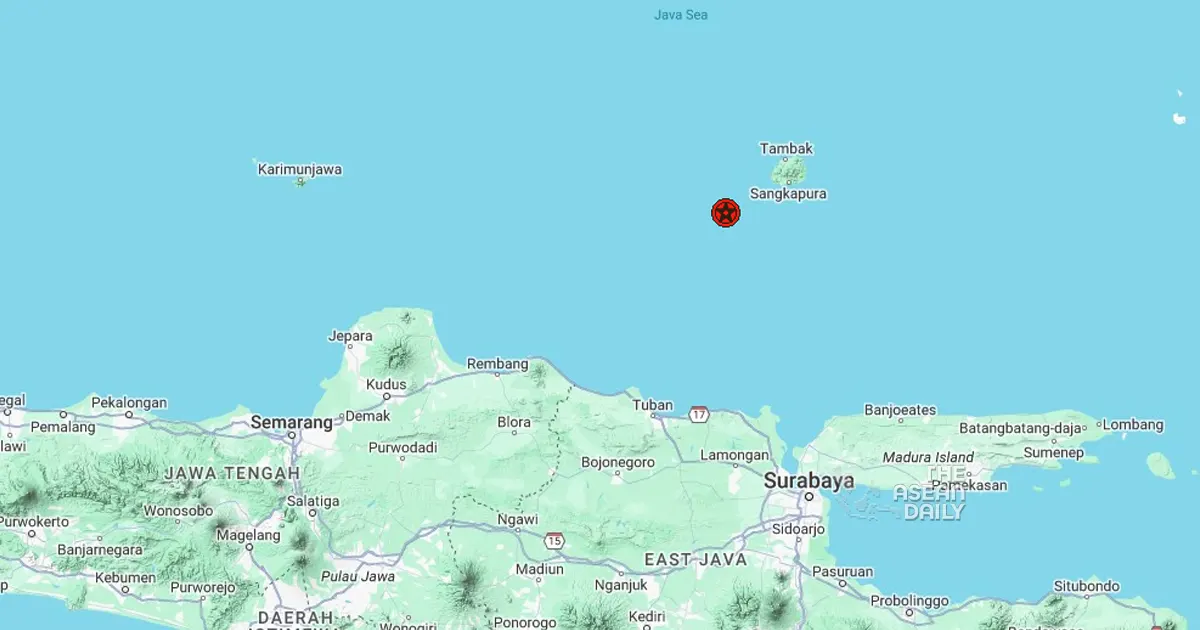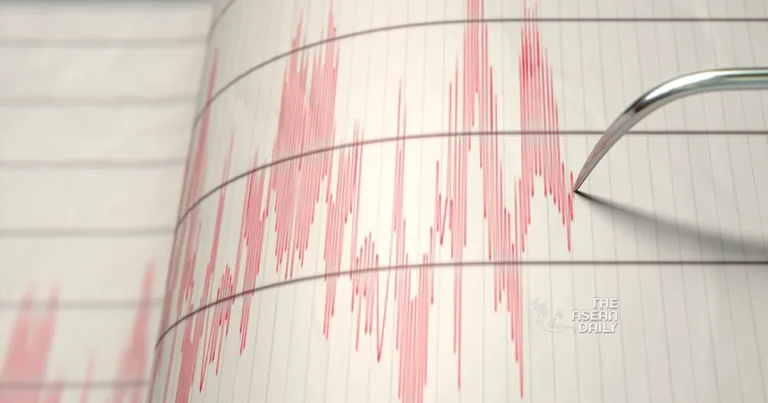22-3-2024 (JAKARTA) A powerful offshore earthquake, registering a magnitude of 6.4, struck near the Indonesian island of Java on Friday, sending tremors across the region and forcing residents in one city to flee their homes. The United States Geological Survey (USGS) reported that the quake had a depth of approximately 8 kilometers and struck off Java’s northern coast, near the island of Bawean, at around 3:52 pm local time (4:52 pm, Singapore time).
While no immediate reports of damage or injuries have emerged, and no tsunami warning was issued by local authorities, the tremor was felt strongly in parts of East Java Province, including the major city of Surabaya. Residents in the area were jolted by the seismic event, with many describing harrowing moments as they sought safety in the open.

Yulianus Andre, an AFP journalist based in Surabaya, recounted the experience, “I was at home when the earthquake struck. The jolt made us unsteady. The water in the sewer (outside) was swaying. My family and I rushed out of home, and our neighbours did too. The jolt lasted more than a minute when we were outside.”
Indonesia, a vast archipelagic nation situated along the Pacific “Ring of Fire,” an arc of intense seismic activity where tectonic plates collide, is no stranger to earthquakes. The country’s geographical position makes it prone to frequent seismic events, some of which have proven catastrophic in the past.
In January 2021, a magnitude-6.2 quake that shook Sulawesi island claimed the lives of more than 100 people and left thousands homeless. The devastating impact of such events was further exemplified by the magnitude-7.5 quake and subsequent tsunami that struck Palu, also on Sulawesi, in 2018, resulting in more than 2,200 fatalities.
Perhaps the most harrowing reminder of Indonesia’s vulnerability to seismic activity was the magnitude-9.1 quake that struck Aceh province in 2004, triggering a devastating tsunami that claimed the lives of more than 170,000 people in the country.




